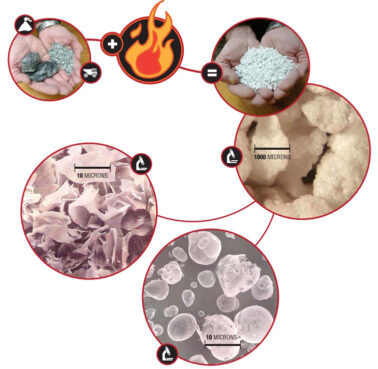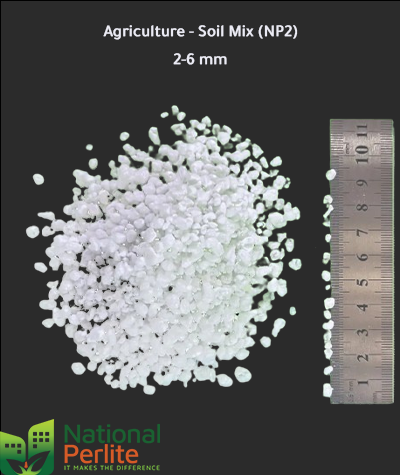

What is Perlite
Understanding Perlite
Perlite is a distinctive siliceous volcanic rock, mined globally, known primarily for its remarkable expansion abilities. When heated to temperatures between 850 – 1150ºC, It can expand up to 35 times its original volume. This expansion is due to the vaporization of water molecules trapped within the mineral’s structure, resulting in a lightweight and porous material with a variety of exceptional physical properties.
Found in deposits around the world, perlite is a form of natural glass, earning its moniker from the Latin term for pearl, “perla,” reflective of its lustrous appearance. This rock varies in color, presenting hues from light gray to rich black.
In its natural state, It is referred to as ore perlite. When it is processed, broken into particular sizes, and sieved, it is known as classified perlite. The transformation into expanded perlite occurs through a process of rapid heating, where the mineral loses its water content and expands dramatically—enhancing its original grain volume by up to 35 times. This expanded form of It is then further processed into various grain sizes tailored to meet the specific demands of different industry sectors, including construction, building materials, insulation, filtration, cryogenic, agriculture and horticulture, plaster, paint, chemical industry, and concrete manufacturers.
This exceptional mineral is utilized in numerous applications, attributing to its versatility and adaptability. It’s the ingenuity within the natural world that offers sustainable and efficient solutions for modern-day industrial challenges.
- Sustainability: Contributes to eco-friendly practices due to its natural origins and the low-energy process required for expansion. Its use can help reduce the overall environmental footprint of various products and industries.
- Non-Toxic and Safe: The inert nature of perlite makes it safe to handle and use, posing no health hazards, which is especially important in applications related to food, pharmaceuticals, and personal care products.
- Energy Efficiency: The insulating properties of play a crucial role in energy conservation, making it a key material in green building design for its ability to help control temperatures and lower energy demands.
- Agricultural Efficiency: In agriculture, perlite’s water-retentive and aerating properties support the growth of plants with less water and fertilizer, contributing to more sustainable farming practices.
- Fireproofing: The natural fire resistance of perlite makes it a valuable additive in materials used for fireproofing buildings, enhancing safety standards in construction.
- Recyclability: In many cases, perlite can be recycled and reused in different applications, which underscores its role in promoting circular economy principles.
International Advocacy and Organizations
The Perlite Institute Inc., based in the USA, plays a pivotal role in advancing the knowledge and use of it. It focuses on:
- Promoting Understanding: Despite its known existence, the full potential and benefits of this are not widely recognized. The Institute works to increase its acceptance and application across various industries.
- Vision for the Future: This industry is poised for growth, with the Institute advocating for awareness and support to realize its potential.
- Resource Development: Providing efficient and economical resources for product descriptions and information dissemination to meet consumer and user needs.
Learn More
Why Perlite Is Effective: A Scientific Perspective
Perlite’s effectiveness is rooted in its unique physical properties. When heated to approximately 900°C (1,700°F), perlite’s volcanic glass softens, and its internal water vaporizes, causing an expansion that transforms the rock into a lightweight, porous material.
Versatile Functionality:
- Insulation: The expanded form of it consists of micro-bubbles, creating an insulative material that traps air and reduces thermal conductivity. This feature makes it ideal for insulation in the construction industry.
- Filtration: These same micro-pores effectively filter out impurities, making perlite an excellent filtration aid for liquids in various sectors, from food and beverage to wastewater treatment.
- Horticulture: In gardening and agriculture, perlite’s air pockets retain water and provide space for air, promoting root growth and improving soil structure without compaction.
- Industrial Uses: It is also incorporated into lightweight plasters, concrete, and refractory materials, improving strength while maintaining a lighter weight.
- Consumer Products: Its gentle abrasiveness and absorbency make it a useful component in personal care products like exfoliants and a carrier in cleaning supplies.


